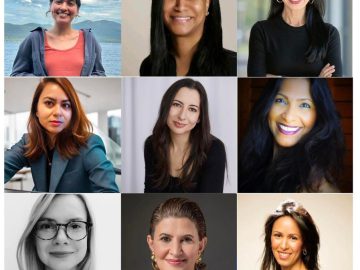One of Silicon Valley’s most respected venture capital firms, Bessemer Venture Partners LLC, today released its latest annual State of the Cloud report and, perhaps not surprisingly, it’s focused for the first time almost exclusively on the impact of artificial intelligence in the cloud computing industry.
The focus on AI underscores Bessemer’s extremely bullish stance on the prospects of generative AI to transform the way humans work, create and communicate, and the report predicts that the technology will cause enormous disruption by the end of the decade.
For the report, Bessemer surveyed 62 global investors, and found that every single one is convinced that generative AI will more than live up to its widely recognized potential. There’s good reason to believe those investors, for they’ve proven more than willing to put their money where their mouths are.
According to Bessemer, large language model developers such as OpenAI, Anthropic PBC Mistral, Cohere Inc., AI21 Labs Inc. raised a collective $23 billion in 2023 alone, reaching an aggregate market capitalization of $124 billion. Bessemer alone invested more than $1 billion in generative AI startups over the last year.
Tech’s next big battle of the century
As a result, Bessemer believes, the generative AI foundational model industry is set to become the next big battleground in the technology industry. It notes that the biggest tech companies – such as Amazon.com Inc., Google LLC, Microsoft Corp., Nvidia Corp. and Oracle Corp. – have all accumulated significant stakes in the most prominent LLM developers in order to boost their own AI capabilities.
At the same time, they’re also working to create their own, in-house LLMs. For instance, Google has its Gemini family of AI models, while Meta Platforms Inc. has Llama.
Bessemer predicts that the battle for AI foundational model dominance will intensify in the coming years, since it represents a critical “land grab” that will determine which of the big tech companies reigns supreme within the wider cloud computing market. It believes that, ultimately, closed-source LLMs such as OpenAI’s GPT models will drive the bulk of LLM compute cycles, and that their developers will ultimately be the biggest beneficiaries of this trend.
The rise of vertical AI
There’s already plenty of evidence to support the growth of vertical LLMs that target very specific functions and industries, many of which were out of bounds for legacy vertical software-as-a-service providers. Most of these vertical AI applications target what Bessemer says are “high-cost, repetitive language-based tasks” that support large sectors of the economy. For instance, its portfolio company EvenUp Inc. has developed AI that’s laser focused on automating third-party legal services, such as paralegal workflows.
The vertical AI industry is mainly characterized by AI-powered copilots, autopilots and other assistive technologies, and Bessemer forecasts its market cap to grow to at least 10 times that of the legacy vertical SaaS industry by the end of the decade.

Multimodal AI to transform human/software relationships
Big things are expected of the new generation of multimodal generative AI models that can handle a much broader range of inputs and tasks. Multimodal LLMs are those that can understand and generate content across a range of modalities, such as text, voice, images and videos.
As Bessemer explains, by supporting a wide range of modalities, AI can effectively see, hear and speak in the same way as humans can. Such abilities will enable AI to augment a much wider range of work-related tasks that require all three senses.
Bessemer believes that voice AI applications in particular will see stunning growth in the next 12 months. In the longer term, it believes so-called “agent-first” products will transform the way businesses operate, automating many complex tasks that could previously be done only by humans.
It held up another of its portfolio companies, Ada Support Inc., as an example of this with its recent integration of chat-based customer support bots that can engage in real conversations with consumers. Another interesting example is Flux.ai Inc., which enables electrical engineers to generate printed circuit board components within their design software by ingesting a PDF spec sheet.
The revival of consumer cloud
Generative AI will also drive a resurgence in what Bessemer calls “consumer cloud” applications and services that are targeted at individuals rather than businesses.
According to the VC firm, the consumer cloud industry has been on its knees for years, with an analysis of the past eight years of its Cloud 100 ranking showing that just 4% of private cloud companies have a recognized consumer offering. It points out that the last pure consumer cloud company to go public was Dropbox Inc. back in 2018.
But this is changing, as generative AI fuels the rise of a new generation of purely consumer-focused technology products. Examples include the AI-powered search engine Perplexity AI Inc., the AI companionship app creator Character Technologies Inc., image-generation app Midjourney and the video generation app Pika Technologies Inc.

According to Bessemer, the rise of generative AI means it’s now an exciting time to be a consumer cloud builder and investor, and it predicts multiple consumer cloud-focused initial public offerings over the next five years.
AI takes over software development
Perhaps the biggest impact of generative AI will be felt in the application development industry, which is racing to embrace automation like no other, Bessemer says. The last year saw numerous startups building AI-powered development tools making waves, with examples including Tabnine Ltd., Magic.dev, Cognition Inc. and Magic AI Inc. Meanwhile, the best-known AI development tool, GitHub Inc.’s Co-Pilot, grew to more than 14 million installations while adding various new features and functionalities.
This trend will result in every human with a computer gaining access to significant developer capabilities, Bessemer said, with the rate of software development expected to “melt keyboards” by the end of the decade.
Bessemer doesn’t see AI replacing developers entirely. Rather, it believes that software developers will instead transition to become something more akin to software reviewers.
“The cost of development will fall, consumption will thus rise, and as experienced developers become more productive their salaries will rise,” the report predicted.

AI revenue acceleration
In its report, Bessemer notes that the future of AI is predicated on the ability of AI model developers to make money. AI consumes tons of computing power and those resources do not come cheap, so it’s vital in the long term that they can figure out how to generate sustainable revenue. To do this, AI developers must ensure that companies get enough value from their AI investments to justify the expense.
As such, Bessemer believes that the focus of many AI companies will switch – at least to an extent – from figuring out what’s possible with AI to working out how they can best monetize these new capabilities.
They’re already making good progress. For instance, OpenAI reportedly reached $2 billion in revenue in February 2024 and expects that number to double by 2025. Meanwhile, Anthropic is reportedly set to generate about $850 million in annual revenue by the end of this year,

“It’s clear that AI-native businesses are on accelerated tracks, growing from $100 million to $1 billion in ARR faster than any other companies in tech history,” Bessemer said.
Featured image: SiliconANGLE/Microsoft Designer
Your vote of support is important to us and it helps us keep the content FREE.
One click below supports our mission to provide free, deep, and relevant content.
Join our community on YouTube
Join the community that includes more than 15,000 #CubeAlumni experts, including Amazon.com CEO Andy Jassy, Dell Technologies founder and CEO Michael Dell, Intel CEO Pat Gelsinger, and many more luminaries and experts.
“TheCUBE is an important partner to the industry. You guys really are a part of our events and we really appreciate you coming and I know people appreciate the content you create as well” – Andy Jassy
THANK YOU




